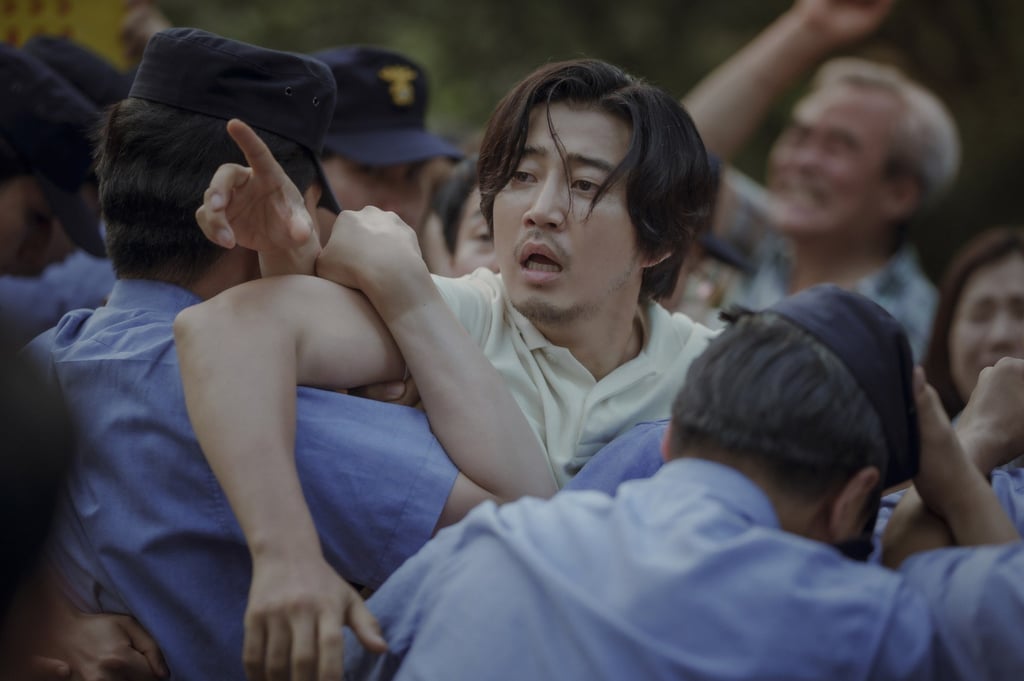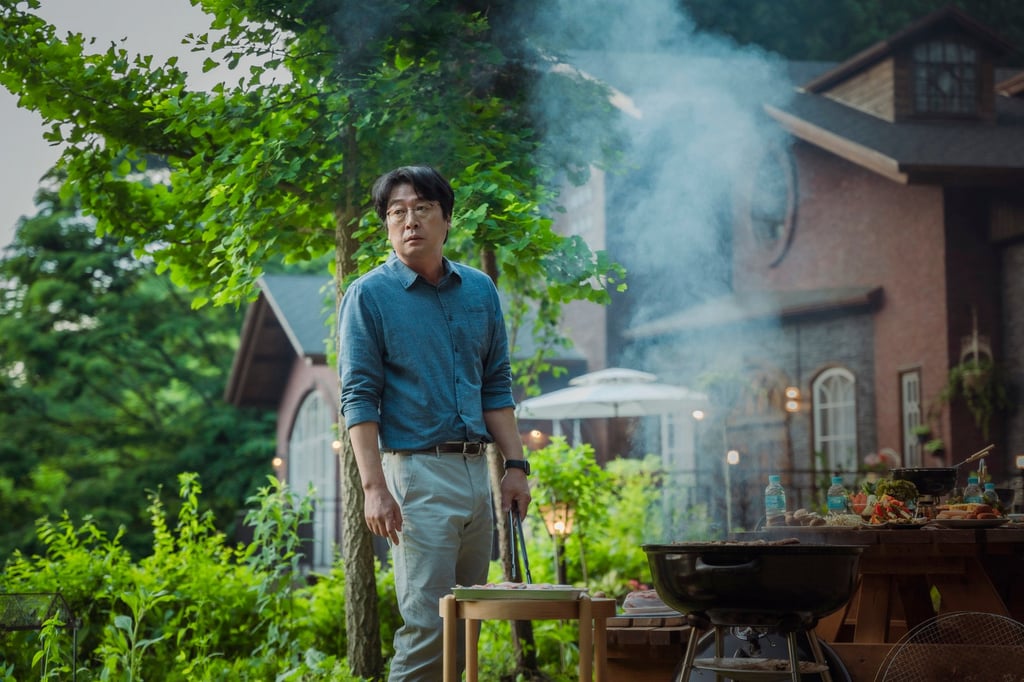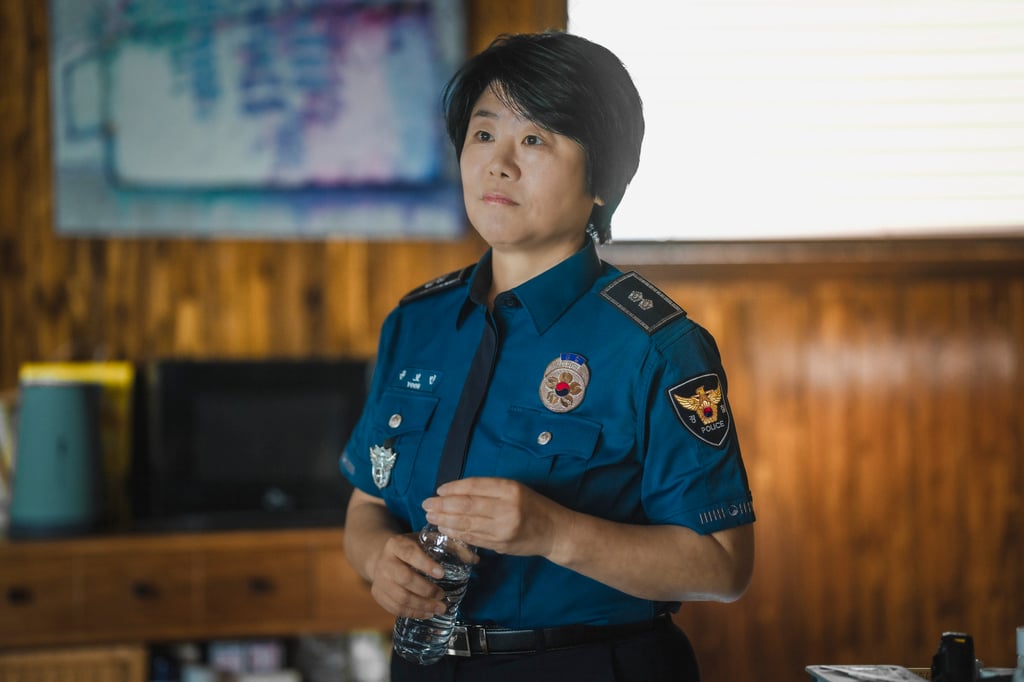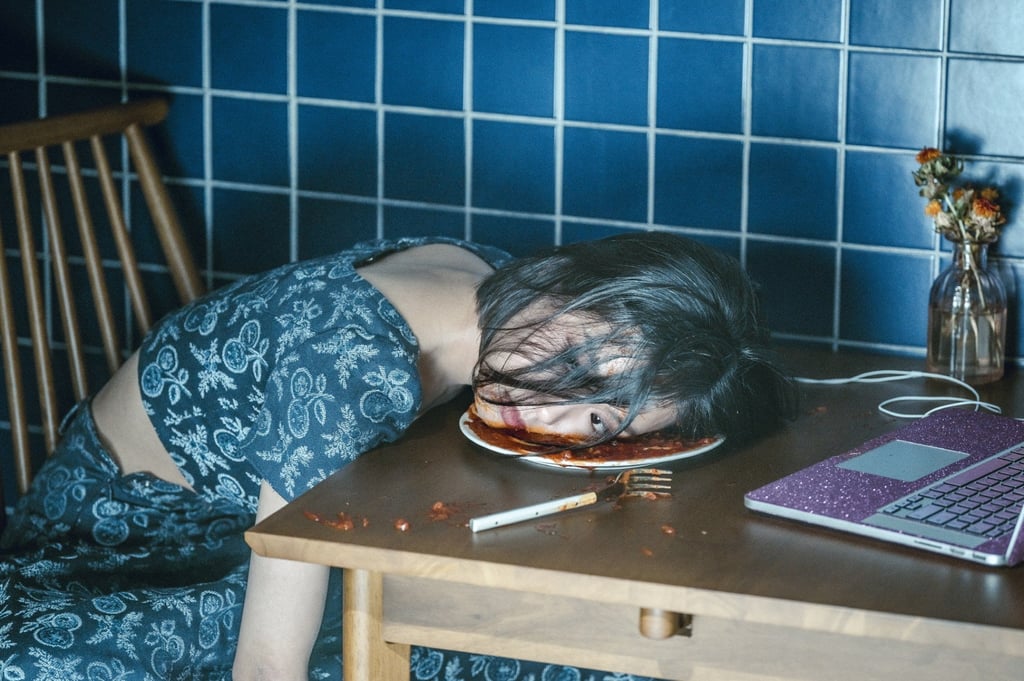Kim plays Jeong Young-ha, the widowed proprietor of a handsome vacation rental in the woods. One day, mysterious young woman Yoo Sung-a (Go) comes to stay along with her stepson. She appears to leave without incident, but then Young-ha starts to believe something may have happened to her stepson.
Meanwhile, in the 2000s, Koo Sang-joon (Yoon) and his family also run a pension in the countryside. Business goes well until one night a stony-faced man comes to stay. When Sang-joon’s wife goes to clean up the next morning, she discovers the decapitated corpse of a young woman.
With the press descending on their property and news of a serial killer sending the country into a tizzy, their lives take a sharp turn for the worse.

Each episode of The Frog begins with one of the characters uttering the famous philosophical thought experiment: “If a tree falls in a forest and no one is around to hear it, does it make a sound?”
The question invites us to think about the difference between perception and reality. The sound a falling tree makes is a physical constant, but if no one is there to experience it, is it still sound as we understand it?
Given how frequently The Frog brings up this thought experiment, its application to the show’s narrative is surprisingly abstruse. It may be an allusion to the disappearance of Sung-a’s stepson, which it is strongly suggested is connected to Young-ha’s lodge.
Young-ha doesn’t know for a fact that something happened on his property, but black- box footage showing Sung-a leaving alone, and the scrubbed-down appearance of the used pension, offer chilling circumstantial evidence that something terrible has happened.

He decides not to follow his suspicions any further, and gets rid of anything that might be evidence, fearing damage to his property’s reputation and wishing to avoid the fate of Sang-joon and his family. As long as he doesn’t know for sure, he can carry on living as though no crime ever took place.
Given that other people were involved in the crime, and that there may be a child victim, this doesn’t offer itself as a terribly satisfying narrative corollary to the famous thought experiment. But if there is a clearer parallel in the story, we have not found it.
Almost as confusing is the English title of the show – the Korean title translates as In the Woods with No One.
The Frog refers to an old Korean saying, “A frog dies from a stone thrown inadvertently”, which means people’s actions can have unintended negative consequences for others. This is a recurring theme of the show, but of course characters’ lives are impacted by the actions of others – that’s how stories work.

With its evocation of summer, richly designed locations and a couple of great needle drops of Bobby Bland’s “Ain’t No Love in the Heart of the City”, The Frog has style to burn.
It also boasts some robust performances, particularly from Kim Yoon-seok as Young-ha, and the scripting, although often heavy-handed and meandering, is also at times lyrical.
Yet while the series has the contours of a gripping mystery, the slow-burn intrigue of the first few episodes begins to fizzle out thanks to some disappointing reveals and hard-to-fathom behaviour.
Also missing is a satisfying connection between the past and present timelines. There are many parallels and they do eventually connect, but the manner in which they do is surprisingly tenuous and lacklustre.

For all that there is that works in The Frog, the lingering sensation is of a missed opportunity. It does not build on its early promise – and if viewers give up on the show and no one sticks around to see the end, did it really happen?
The Frog is streaming on Netflix.

